The Best Chorus Pedal to Add Richness to Your Tone in 2023
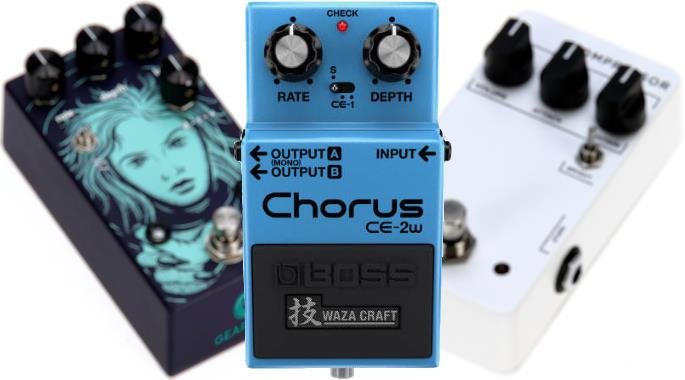
Author & Contributors
Alexander Briones
I have been writing about and researching music gear for many years, all while serving as a music director at my local church. I engage in guitar playing and singer-songwriter stints, in addition to mentoring young musicians and teaching guitar and bass.
Best Chorus Pedals Under $50
While not necessarily rated as highly rated as their more expensive counterparts, the two chorus pedals below let you add a surprisingly good chorus effect to your tone while keeping the cost really low.
Azor Chorus - Digital
Cons
- Sounds thin compared to other chorus pedals
Pros
- Compact size
- Analog sounding tone
- Amazing value given it's size and price tag
The Azor Chorus is a compact mini chorus pedal that doesn't limit your control options, and it does so while keeping the price budget-friendly.
For its size, it comes with essential controls that include Depth, Level, and Rate knobs.
The biggest knob lets you adjust the rate, which is the speed of the chorus wobbles. Two smaller knobs let you adjust Depth and Level, the depth being how deep your chorus wobbles, while level enables you to adjust the prominence of the affected signal. As such, the level knob behaves more like a mix or blend control than a volume control knob.
I recommend getting the Azor Chorus for an affordable size-saving chorus pedal.
Specifications
- Control: Level, Rate, Depth
- Circuit: Digital
- Bypass: True Bypass
- Power: 9-Volt Battery (Via External Whip Cable) and Power Adapter (not included)
- Dimensions: 3.7" x 1.7" x 1.3"
- Weight: 0.53 lbs.
| Website | Source | *Rating Value |
| YouTube | rockongoodpeople | 92/100 |
| The Bass Channel | Doug Robertson | 92/100 |
Demo
TC Electronic 3rd Dimension Chorus Pedal
Cons
- No knobs for fine tuning
- Not conducive to on-the-fly setting changes
Pros
- 16 Chorus Sounds
- Good build quality for the price
- Amazing tone and value for the price
The TC Electronic 3rd Dimension Chorus packs some punch for something affordable and compact.
The four buttons up top let you switch between 16 different chorus sounds. And many of these settings sound much better than what you'd expect from a cheap chorus pedal.
The differences between the types are mild but varied. Between the 16 settings, you get a wide range of sounds, from subtle to lush chorus.
While this is a chorus pedal for guitar, it also works well with bass and other instruments.
TC Electronic has hinted that this chorus pedal is based on a "classic" 80's era unit. And while they didn't specify which one, it's easy to guess based on the name.
The classic chorus pedal this is based on is a highly rated but more expensive pedal also featured in this guide.
The apparent side effects of its button-based interface is the lack of fine-tuning afforded by knobs. It can also be hard to press tiny buttons when performing. There are also no LED lights that signal which button is pressed, which makes it even harder to make setting changes on the fly.
These downsides are forgivable, given the build and sound quality you get for the price. It is also worth noting that this pedal has true bypass, so doesn't need to meet buffered bypass power requirements.
This is for you if you're an '80s-style chorus fan and want a set-and-forget chorus pedal.
Specifications
- Control: 4 Preset Buttons and a Single Footswitch
- Circuit: Analog
- Bypass: True Bypass
- Power: 9-Volt Battery and Power Adapter (not included)
- Dimensions: 5.2" x 2.9" x 2.3"
- Weight: 1.1 lbs.
| Website | Source | *Rating Value |
| YouTube | 60 Cycle Hum | 90/100 |
Demo
Best Chorus Pedals Under $100
In the $50 to $100 price tier you see chorus pedals that are of a gigging and recording quality. The main difference between them and more expensive chorus pedals being their respective amount of features as opposed to their tone.
Mooer Ensemble King - Analog
Cons
- Lacks tonal brightness
- Limited parameters to adjust your tone
Pros
- Simple yet effective operation
- Warm and subtle chorus effect
- Durable metal casing and small form factor
With its compact "mini" pedal form factor, the Mooer Ensemble King
Analog Chorus is meant to help you free up some pedalboard space or fit into already packed ones.
Controls are kept to a minimum, with the main rate knob adjusting the modulation rate and two smaller knobs for tweaking depth and level.
It comes with a conventional footswitch and is housed in a metal chassis, which allows it to handle the rigors of regular gigging.
Sporting a compact size and affordable price tag, the Mooer Ensemble
King is a great chorus pedal for anyone who likes their chorus warmer and on the subtle side.
Note that it doesn't run on batteries, so you'll need a 9V DC power adapter if you don't already have one.
Specifications
- Control: Level, Rate, Depth
- Circuit: Analog
- Bypass: True Bypass
- Power: 9-Volt Adapter
- Dimensions: 1.65" x 2.1" x 3.7"
- Weight: 0.36 lbs.
| Website | Source | *Rating Value |
| The Gear Page | scottosan | 94/100 |
Demo
JHS 3 Series Chorus - Digital
Cons
- Required power supply sold separately
Pros
- A wide range of chorus tones
- Vibe switch a welcome addition
- Clean looks and rugged reliability
Most affordable pedals copy popular circuits, turning them into budget alternatives. JHS strayed from this path with their cheap "3 Series" line of pedals, each offering something distinct relative to others in the same price range.
At first glance, the 3 Series Chorus seems like a straightforward chorus pedal, but flipping the "Vibe" turns it into a vintage-style vibrato effect.
The Vibe switch achieves this by removing the dry signal and leaving on the warbled chorus sound.
The volume, rate, and depth controls provide familiar controls that let you dial in your preferred modulation category settings.
The flexibility you can get out of this chorus pedal is stunning for its simple 3-knob configuration.
A drawback for some is that you must buy a 70mA 9V power supply separately if you don't already have one because it doesn't run on batteries.
From modern subtle to 80's style chorus with distortion, this chorus pedal delivers the goods with style and little fuss. The Vibe switch, one of its distinct features, is excellent to have and adds to the available tones you get out of this chorus pedal, but it does not outshine its highly-rated chorus sound.
Specifications
- Control: Volume, Rate, Depth, Vibe
- Circuit: Digital
- Bypass: True Bypass
- Power: 9-Volt Adapter (Sold Separately)
- Dimensions: 1.22" x 2.38" x 4.42"
- Weight: 0.36 lbs.
| Website | Source | *Rating Value |
| YouTube | Tribe Of Names | 94/100 |
| YouTube | Living Room Gear Demos | 94/100 |
Demo
Best Chorus Pedals - $100 & Above
The chorus pedals below are phenomenal, with premium features and build quality.
Boss CH-1 Super Chorus - Digital
Cons
- Can sound uninteresting and cheesy
- No saving settings to memory
Pros
- Classic, warm chorus sound with many usable tones
- Boss pedal reliability and ruggedness
- Has stereo outputs
- Very popular chorus pedal
The CH-1 by Boss is a guitar chorus pedal with a stereo output and 4 knobs to adjust your tone.
Tracing its roots back to the late 80s, this is one of the most popular and best-selling chorus pedals today and has been in production for over 30 years!
I've enjoyed using the CH-1 during rehearsals, recording, and soon at live gigs. It has a clear, creamy, and thick chorus sound that I can appreciate even at subtle effect levels.
Although it is a versatile chorus pedal with many usable classic chorus sounds, it doesn't make the wild, experimental sounds I was hoping for, like extreme detuning or weird sounds I've never heard. Also, its classic, widely recognizable sound can sometimes be its downfall, bordering on cheesy and generic. This a great chorus pedal with no surprises, but sometimes you want to be surprised.
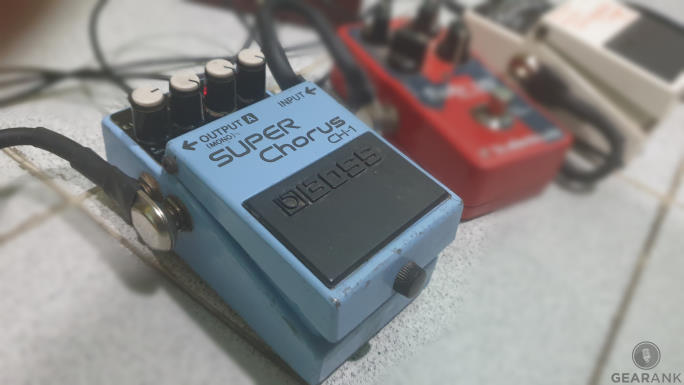
However, the CH-1 is fine; it is the most popular chorus pedal on our recommended list, as measured by the number of review and rating sources.
If you're looking for a standard, no-frills yet highly tweakable stereo chorus pedal, the CH-1 is a reliable and versatile option with good ratings. You should look elsewhere if you're going for something more out of the box and downright wacky.
| Website | Source | *Rating Value |
| Gearank | Alden Acosta | 90/100 |
| YouTube | Devan Bishop | 92/100 |

MXR M234 - Analog
Cons
- Subtler than most chorus pedals
- Sounds like an ambiguous mixture of chorus and vibrato effects
Pros
- Warm 90's vibe analog sound
- Natural, organic and inspiring feel
- EQ controls for tweakers
The MXR M234 is an analog chorus pedal with expanded controls that adjusts level, rate, depth, and low and hi-cut.
These controls allow you to shape the resulting tone for a more personalized chorus sound with its distinctly warm tonality.
The MXR M234 provides what you'd expect from an analog modulation pedal.
Its chorus effect sounds warm and lush, and when the effect is off, your sound is not affected due to having a true bypass.
The MXR234 is solid and durable, the benefits of which should not be understated.
Note that the MXR M234 has recently moved up the price bracket.
Specifications
- Control: Level, Rate, Depth, Low-Cut, High-Cut
- Circuit: Analog
- Bypass: Hardwire Bypass
- Power: 9-Volt Adapter or Battery
- Dimensions: 5.5" x 2.5" x 4.5"
- Weight: 0.9 lb.
| Website | Source | *Rating Value |
| YouTube | GearGasms | 70/100 |
| Youtube | The Gear Cage | 99/100 |
Demo
Walrus Audio Julia V2 - Analog
Cons
- A bit complicated to use - not plug and play
Pros
- Supreme flexibility and range of tone
- Awesome pedal aesthetics
- Limited lifetime warranty
The Walrus Audio Julia Analog Chorus V2 is a pedal that houses chorus and vibrato with expanded controls and tweakability.
While other chorus pedals provide both chorus and vibrato, this one stands out with its LFO sine and triangle waveform switch. Traditionally, a triangle waveform is ideal for chorus, while a sine wave is meant for vibrato. But you can always break with tradition and experiment to your heart's fancy together with Rate, Depth, and Blend knobs.
Another distinct feature of this chorus pedal is its lag knob, which sets the modulation's "lag" or delay time; it can go from tight modulation to a detuned sound.
Rounding out its unique features is the use of artwork by Adam Forster.
The Walrus Audio Julia V2 is meant to scratch the tweaking itch of adventurous musicians - let your creativity run wild with this chorus.
Specifications
- Control: Rate, Depth, D.C.V Blend, Lag, Wave Switch
- Circuit: Analog
- Bypass: True Bypass
- Power: 9-Volt Adapter and Battery
- Dimensions: 4.77" x 2.3" x 2.9"
- Weight: 0.59 lbs.
| Website | Source | *Rating Value |
| Guitar.com | Michael Watts | 90/100 |
Demo
JHS Emperor V2 - Analog
Cons
- Lacks a mix knob
Pros
- Clean and vintage sounding
- Goes from tame and subtle to wild
- Tap tempo and expression pedal options for uncanny control
The JHS Emperor V2 is an analog chorus vibrato pedal. Its most distinct feature is its tap tempo footswitch, which lets you set the modulation speed to match the beat of the music you're playing.
Another nifty one is taking an expression pedal to control the speed/rate in real-time.
This version 2 has the same features as the original but is packed inside a more compact form factor. At its core is a real 3207 bucket-brigade circuit, which gives it vintage tones closer to old-school favorites. Bucket Brigade technology is sought after by those who are into vintage chorus sounds.
Controls include knobs for volume, speed, EQ, and depth, along with a switch that lets you choose between 3 different waveform shapes that vary the overall sound. All these controls can allow for a wide variety of chorus tones.
In addition, this chorus pedal also lets you switch between analog chorus and vibrato, which expands what the pedal can do even further.
Modern features, including switchable true or buffered bypass and stereo output, contrast its vintage style tone.
It's hard to go wrong with the JHS Emperor V2 with its Bucket Brigade circuitry. This is a good chorus pedal for chorus and vibrato fans. It gives you classic chorus sounds with modern and premium implements.
Specifications
- Control: Volume, Speed, EQ, Depth, Waveform Switch, Chorus/Vibrato Switch
- Circuit: Analog
- Bypass: Switchable (True/Buffered)
- Power: 9-Volt Battery and Power Adapter (not included)
- Dimensions: 5" x 2.1" x 2.5"
- Weight: 0.63 lbs.
| Website | Source | *Rating Value |
| YouTube | Robin Flink | 98/100 |
| Var Guitar | Sebastian | 98/100 |
Demo
Boss CE-2W Waza Craft - Analog
Cons
- Only 2 effect parameters - depth and rate setting
- Lacks mix or volume options
Pros
- Rich and vibrant tone - quite close to the originals
- Boss compact pedal trusted reliability
- 3 modes including 2 choruses and 1 vibrato
- Stereo output capability not found in the original CE-2
The Boss CE 2W Chorus pedal combines the famous CE-2 and the CE-1 (vibrato and chorus effects).
Right off the bat, the first thing to know about this chorus pedal is that it does a pretty solid job of approximating the tone of these vintage effects.
But the question is: Does the Boss CE 2 Chorus pedal stack up against its modern competition? I believe so.
A possible flaw is that there are only two controls: rate and depth. Though, dozens of albums have been made with chorus pedals that only have these two controls. So although limited when compared to pedals with a more modern design philosophy, it is easy to dial in a classic, creamy chorus tone.
If you want to reproduce the familiar 80s chorus sound, this special edition Waza pedal from Boss is an excellent way. Another highly regarded digital chorus from Boss you might like to check out is the CE-5 Chorus Ensemble.
Specifications
- Control: Rate, Depth, Chorus/Vibrato Mode
- Circuit: Analog
- Bypass: Buffered Bypass
- Power: 9-Volt Adapter and Battery
- Dimensions: 5.12" x 2.87" x 2.37"
- Weight: 1 lbs.
| Website | Source | *Rating Value |
| Premier Guitar | Charles Saufley | 90/100 |
| Sound On Sound | Paul White | 90/100 |
Demo
Boss DC-2W Dimension C Waza Craft - Analog
Cons
- Only 4 presets and 2 modes - no fine tuning or knob tweaking
- Lacks mix or volume options
Pros
- Lush chorus, beautiful and unique sounding
- Tank-like build quality
- Works well with other pedals
The Boss DC-2W is a premium Waza Craft re-issue of their classic Dimension C chorus pedal. And just like the original, it sports a 4-button preset interface instead of the usual knob-based control.
The buttons let you access different chorus modes. New in this version is the ability to activate two preset buttons simultaneously, combining two presets.
A Mode Selector switch lets you switch between the original DC-2 sound and a sound based on the Roland SDD-320 rack chorus. The SDD-320 mode provides more sparkle compared to the DC-2 mode.
All-in-all, this chorus pedal gives you 20 chorus settings to play with.
Dimension C is not a conventional chorus but a subtle enhancer of depth and width that sounds similar to a chorus.
Having been made by Boss, reliability is a given, while being part of their Waza Craft line ensures its premium build and sound quality.
The Boss DC-2W gives you easy access to that special, subtle, yet impactful classic chorus sound, and it will reliably do so for a long time.
Specifications
- Control: 4 Preset Buttons, Mode Selector Switch
- Circuit: Analog
- Bypass: Buffered
- Power: 9-Volt Battery and Power Adapter (Sold Separately)
- Dimensions: 5.12" x 2.37" x 2.87"
- Weight: 1 lbs.
| Website | Source | *Rating Value |
| MusicRadar | Trevor Curwen | 90/100 |
| circaatomicage | 80/100 |
Demo
Things to Consider When Buying a Chorus Pedal
Here we take a more in-depth look at important factors to consider when buying a chorus pedal, along with a bit more information about the chorus effect in general.
-
Unlike many other hobbies, instruments and effects don't have a linear improvement in quality as price increases. Effects pedals, in particular, are subject to a high rate of diminishing returns, so once you get past a specific price point ($100 generally), you're only sometimes experiencing large jumps in quality.
With chorus pedals, spending more money means getting extra features like time and feedback controls and an expression pedal input.
Time controls the time it takes for the modulated signal to be heard, and feedback adds resonance to the tone. An expression pedal allows you to control a parameter with a foot pedal.
Note that you get an increase in features, not necessarily an increase in tone quality. If you use the extra features provided by more expensive units, the increase in cost may be worth it. Still, if you're not, you will generally be better off getting a highly-reviewed pedal with a more minimalist control layout.
-
The debate between analog and digital has always been a point of contention in guitar-playing circles. Some musicians feel that digital effects don't have an "organic" tone, while others feel that the relatively bright voicing of digital helps their signal cut through the mix.
There is a technical difference between an analog and digital chorus, but it's incredibly technical. In summation, use your ears to make your decision. Just know that analog choruses will be warmer than a digital chorus effects to help you narrow your search.
-
Many guitar players are concerned about the bypass configuration of their pedals. Bypass is the path that your signal follows when an effect is disengaged. A buffered output strengthens the signal as it exits the pedal. True bypass allows the signal to pass through the pedal without going through its circuitry.
Many musicians feel that true bypass prevents tone loss, which is valid. Your guitar signal gradually degrades based on the length it travels, with notable degradation starting around 12 feet in length. So true bypass helps to reduce the distance, which in turn reduces tone loss. Buffered bypass boosts the signal, reintroducing the high-end frequencies lost as the signal travels.
The only bypass configuration that's limiting is hardwire bypass, where your signal passes through the pedal without being boosted.
-
The generally accepted Guitar Pedal Order starts with compression, then filter (wah), distortion/overdrive, modulation effects (chorus, flanger, vibrato), delay/reverb, and finally volume pedals. However, many musicians change the order of effects based on the tone they want. Kurt Cobain
Think of it this way: you have a continuous signal modulated based on the pedal the signal passes through. The modulation used carries through the chain. For example, your distorted signal will be modulated if you have a distortion before a chorus (and both are engaged). With so many effects available and parallel signal chains via an ABY Switch, there are a ton of different configurations available, so to know which order of effects works best for you, you're going to have to experiment.
-
Plenty of multi-effects pedals and guitar processors come with different chorus effects and various other effects types. Generally speaking, standalone chorus pedals are expected to sound better, so we decided to focus on them for this guide.
But don't count out multi-effects yet because many of them can get the job done and do so for a lot less - thanks to improvements in Digital Sound Processing (DSP) technology. They can also be an excellent affordable entryway into chorus effect usage and effects in general.
Budget vs. High End Chorus Pedals
Digital vs. Analog Chorus Pedals
Buffered vs. Hardwire vs. True Bypass
Chorus’s Place in Your Signal Chain
Chorus in Multi-Effects Pedals
Best Chorus Pedal Selection Methodology
The first Edition was published in 2017. The current edition was published on August 22, 2023.
First, we considered all the standalone chorus pedals rated highly in the market and available from major online US music gear stores. Then, for this edition, we ended up with a short list of 25, which includes top-rated pedals from brands like Boss, TC Electronic, MXR, JHS, Mooer, Electro Harmonix, EarthQuaker Devices and More. You can view it in the Music Gear Database.
We then collected ratings and reviews from online stores, forums, videos, and major music gear publications. All these data were then processed with the Gearank Algorithm to produce Gearank scores out of 100 for each of them. Over 15,700 sources were used during this process.
Finally, we broke the list into price brackets and selected the highest-rated ones to recommend above. For more information about our methods, see How Gearank Works.
Other popular chorus pedals that did not make the list include the EHX Small Clone and the EarthQuaker Devices Sea Machine.
About the Author and Contributors
Here are the key people and sources involved in this guide's production - click on linked names for information about their music industry backgrounds.
Lead Author & Researcher
Alexander Briones
I have been writing about and researching music gear for many years, all while serving as a music director at my local church. I engage in guitar playing and singer-songwriter stints, in addition to mentoring young musicians and teaching guitar and bass.
I've written about and researched music gear for many years while serving as a music director at my local church, teaching guitar and bass, and mentoring young musicians.
I usually use an analog-style chorus and keep it as subtle as possible when I use chorus.
Contributors
Alden Acosta: Product research and the Boss CH-1 Review.
Mason Hoberg: Supplemental writing.
Jason Horton: Editing and Illustrating.
Media
Main/Top Image: Produced by Gearank.com using photographs of the Walrus Audio Julia V2, Boss CE-2W Waza Craft and JHS 3 Series Chorus.
The videos above have been embedded in accordance with YouTube's Terms of Service.
The individual product images were sourced from websites, promotional materials or supporting documentation provided by their respective manufacturers with the exception of the "Plugged in Boss CH-1" photograph which was taken by Alden Acosta.



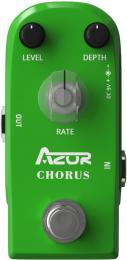
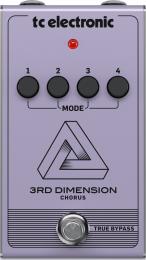
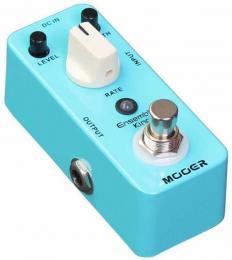
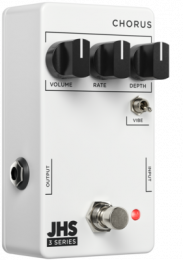
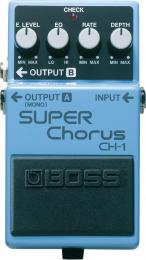
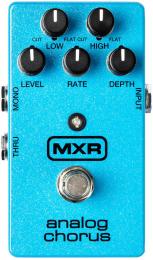
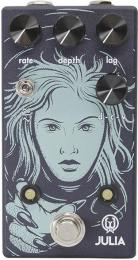
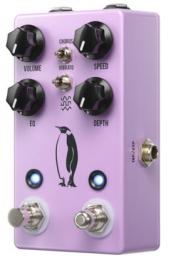
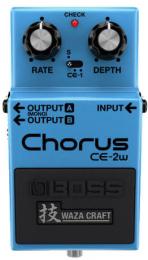
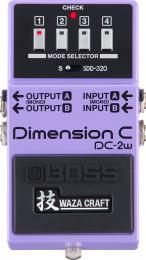
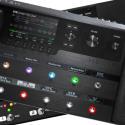
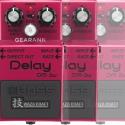
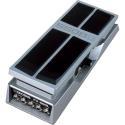
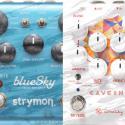
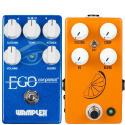

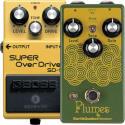
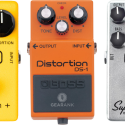
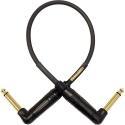
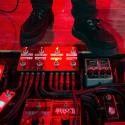

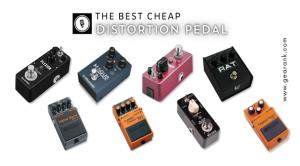
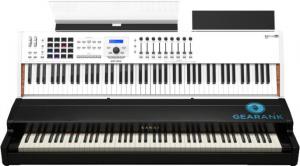
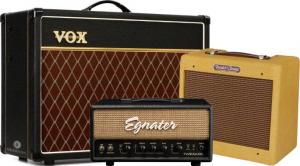
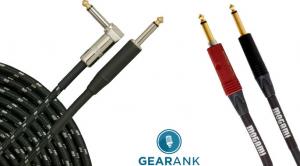
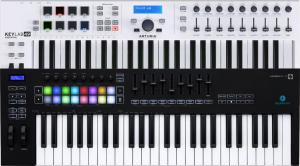
Comments
Publication of our January
Submitted by Jason Horton on
Publication of our January 2022 Edition resulted in the following pedals coming off the recommended list above, but you can still see our analysis of them:
We have removed the following
Submitted by Jason Horton on
We have removed the following pedal due to a price increase putting it above the $100 limit for its category: Electro-Harmonix Small Clone. This was the chorus unit used by Kurt Cobain in Nirvana's Come as you Are.
The following chorus pedal
Submitted by Jason Horton on
The following chorus pedal has been removed from the recommended list above due to a price increase putting above $100: TC Electronic Corona Mini.
Our January 2021 update
Submitted by Jason Horton on
Our January 2021 update resulted in the following pedal coming off the recommended list above, but you can still read our analysis of it:
As a result of our January
Submitted by Jason Horton on
As a result of our January 2020 update the following chorus pedals came off our recommended list above but you can still see our analysis of them:
Due to begin discontinued, we
Submitted by Jason Horton on
Due to begin discontinued, we have removed the following chorus pedal from the recommended list above, but you can still read what we have to say about it: Moog MF Minifooger Chorus Pedal.
According to the "MXR Bypass
Submitted by PR (not verified) on
According to the "MXR Bypass List", both the Stereo Chorus and the Analogue Chorus are buffered.